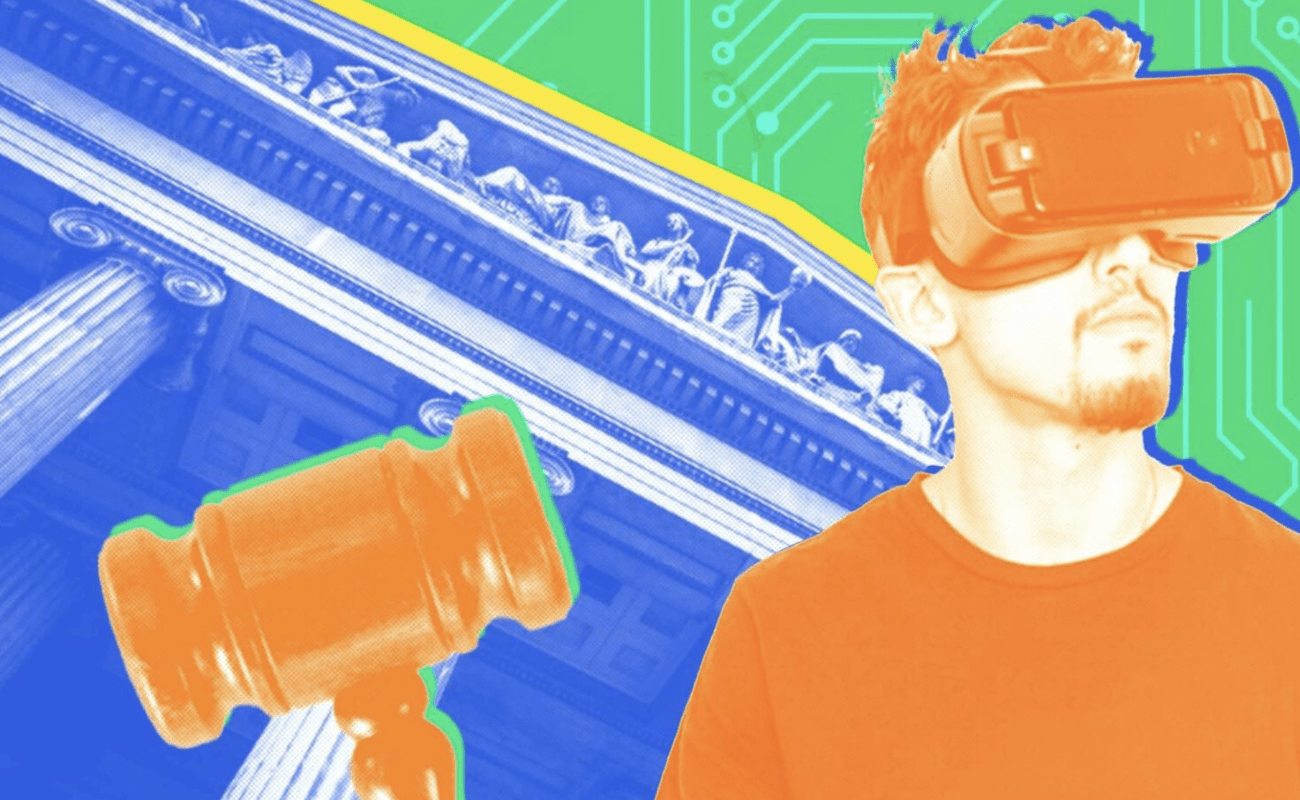We already know that morality is complicated in the real world, so will morality in the metaverse be any different? How will regulation help frame the legalities and moral dilemmas that might arise in virtual worlds?
For example, how should we regulate activities like drinking and smoking in the metaverse if teenagers use digital avatars? Should those same teenagers be allowed into a metaverse nightclub? Let’s take a closer look at issues that arise when it’s time to examine morality in the metaverse.
Gambling in the metaverse

What ethics should we consider when it comes to gambling in the metaverse? Research suggests that loot boxes are linked to “problem gambling” behavior. Epic Games, a major metaverse player, recently called for an end to loot boxes, but it doesn’t mean that other gaming companies will take the same moral stance.
Metaverse casinos already exist. A casino in Decentraland currently rakes in millions of dollars every month and accounts for a third of its daily users. The metaverse will have to compete with the massive online gambling sector, but it can provide immersive experiences that end up luring gamblers from other platforms. Will the metaverse be subject to standard online regulation, or is that virtually impossible thanks to the decentralized nature of virtual worlds?
Porn and sexual content

Let’s be honest: it isn’t exactly difficult for teenagers to find porn on the Internet. In fact, there is so much pornography that it accounts for 35% of all Internet downloads. What does this mean for sexual content and morality in the metaverse? It looks like there are already issues to address.
A researcher posing as a 13 year-old girl in the metaverse was recently allowed into a strip club and witnessed “grooming, sexual insults, and a rape threat.” She also saw other avatars simulating sex and was shown sex toys and condoms. Somehow, we will have to determine how sin products like sex toys and pornographic content should be regulated in virtual worlds.
The researcher even claims that some children she spoke to during her research were “forced to have virtual sex.” How exactly will children and adults be separated in the metaverse to prevent predators from approaching them? What kind of repercussions will emerge for those who sexually assault other avatars in the metaverse?
In a decentralized virtual world, how do we prevent teenagers from viewing inappropriate sexual content? This question will be critical to establishing morality in the metaverse.
What will “crime” be like in the metaverse?

If we want to establish morality in the metaverse, there will have to be some agreement regarding ethics in the metaverse and some kind of regulations for sin products. Over the next several years, we should expect to see laws emerging regarding harassment, obscenity, and theft in the metaverse.
A teenager might have a cocktail or smoke a cigarette in the metaverse. While this obviously does not mean the teenager will physically feel the effects of the behavior, will we decide this is acceptable or will the general consensus be that this shouldn’t be allowed, since it might normalize the behavior? Will cigarette companies or vape companies be allowed to advertise in virtual worlds, and how will that marketing be regulated?
How do we determine morality in the metaverse?

It’s easy to believe we have all the answers when it comes to morality in the metaverse, but cultural trends change. It’s important to note that only a few decades ago, many people had a much more different view of issues like substance abuse or same-sex marriage.
The general public might think of virtual worlds as “gaming worlds,” but the rise of the metaverse means more of our everyday lives will involve entering them. What is a crime in a virtual world? Even if you can’t “murder” someone in the metaverse, what does it mean if you do physically assault another avatar? How much will sin products be taxed in the metaverse compared to the real world?
Also, what does punishment in a virtual world look like? If you are kicked out of a metaverse because of “illegal” actions, can you enter another one? Will the action somehow be recorded on the blockchain?
Will your actions in the metaverse depend on the laws of the state in which you live? It will take time for morality in the metaverse to be established, and that morality will likely depend on the metaverse you choose to enter.
About the Author

Neil Mathew
About Decentral Publishing
Decentral Publishing is dedicated to producing content through our blog, eBooks, and docu-series to help our readers deepen their knowledge of cryptocurrency and related topics. Do you have a fresh perspective or any other topics worth discussing? Keep the conversation going with us online at: Facebook, Twitter, Instagram, and LinkedIn.


